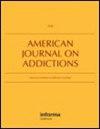Does cyber dating abuse victimization predict next-day alcohol and cannabis use among college students?
Abstract
Background and Objectives
Cyber dating abuse (CDA) is prevalent on college campuses, with 43% of college students experiencing CDA each year. Yet, the potential impacts of CDA victimization on college students' health outcomes remain poorly understood. Informed by the self-medication hypothesis and longitudinal data linking dating abuse to substance use outcomes, the present study tested the hypothesis that CDA victimization positively associates with college students' next-day alcohol use (number of drinks consumed, odds of any drinking) and odds of cannabis use (yes/no). We also explored whether CDA's association with next-day substance use varied as a function of gender.
Methods
Daily data on alcohol use, cannabis use, and CDA victimization were collected across 60 consecutive days from 236 undergraduates who were in dating relationships (73.73% cisgender women).
Results
Multilevel modeling revealed gender differences. Among men, CDA victimization predicted next-day cannabis use (aOR = 7.34, p < .001), but negatively related to the number of drinks consumed the following day (B = −2.63, p < .001). Among women, CDA victimization did not relate to next-day cannabis or alcohol use. Regardless of gender, CDA victimization was unrelated to the odds of any drinking.
Discussion and Conclusions
College men are more likely to use cannabis the day after experiencing CDA victimization relative to other days. Targeting CDA and related aftermath may benefit college-based substance use intervention.
Scientific Significance
This is the first study to identify that cannabis use occurs subsequent to CDA victimization, which can inform college-based CDA and cannabis use prevention programming.

 求助内容:
求助内容: 应助结果提醒方式:
应助结果提醒方式:


